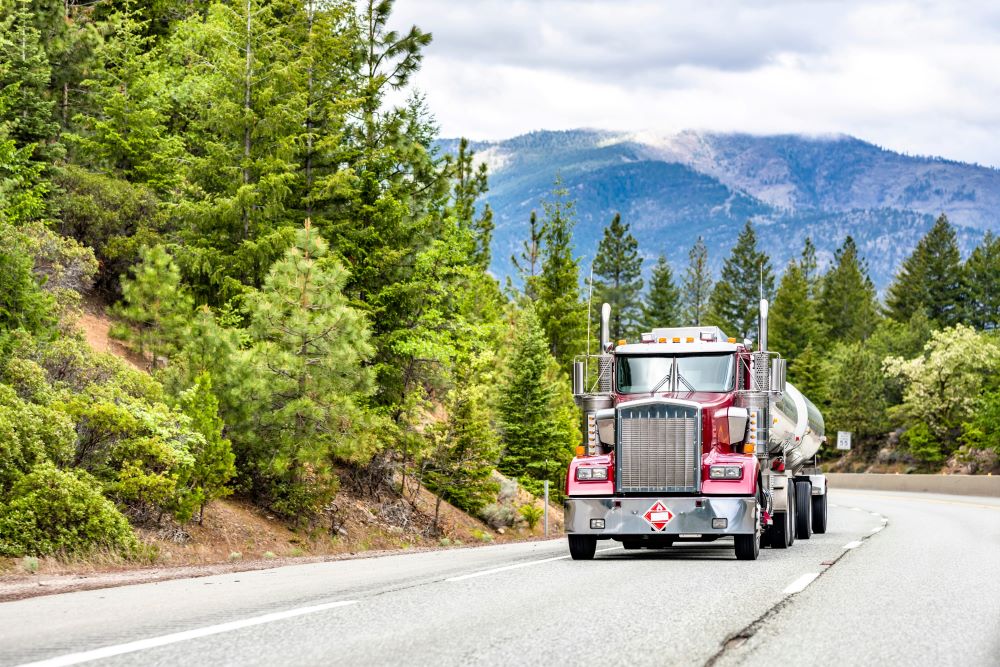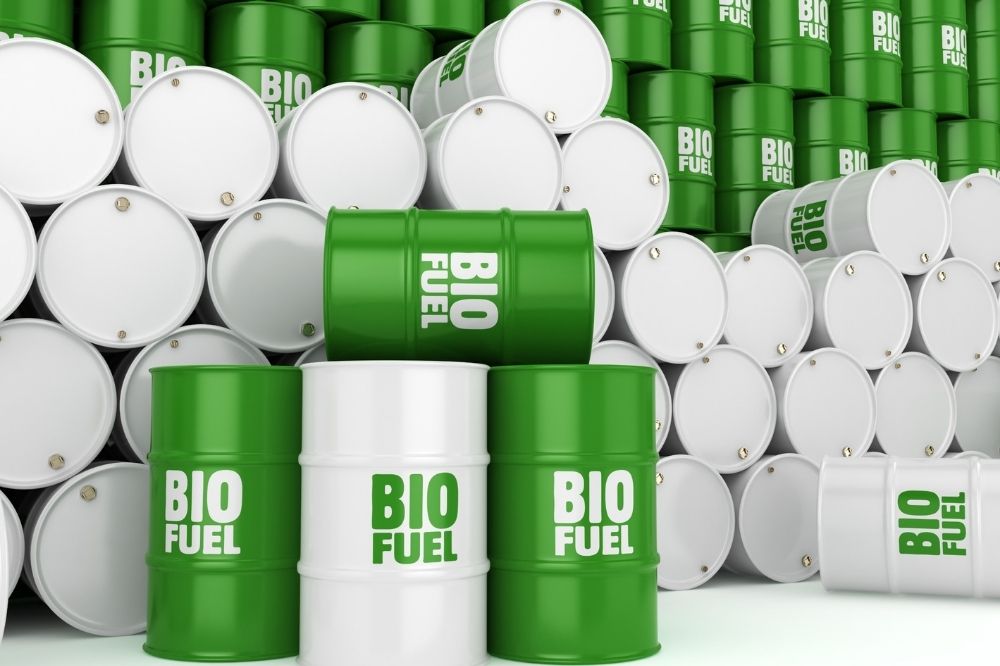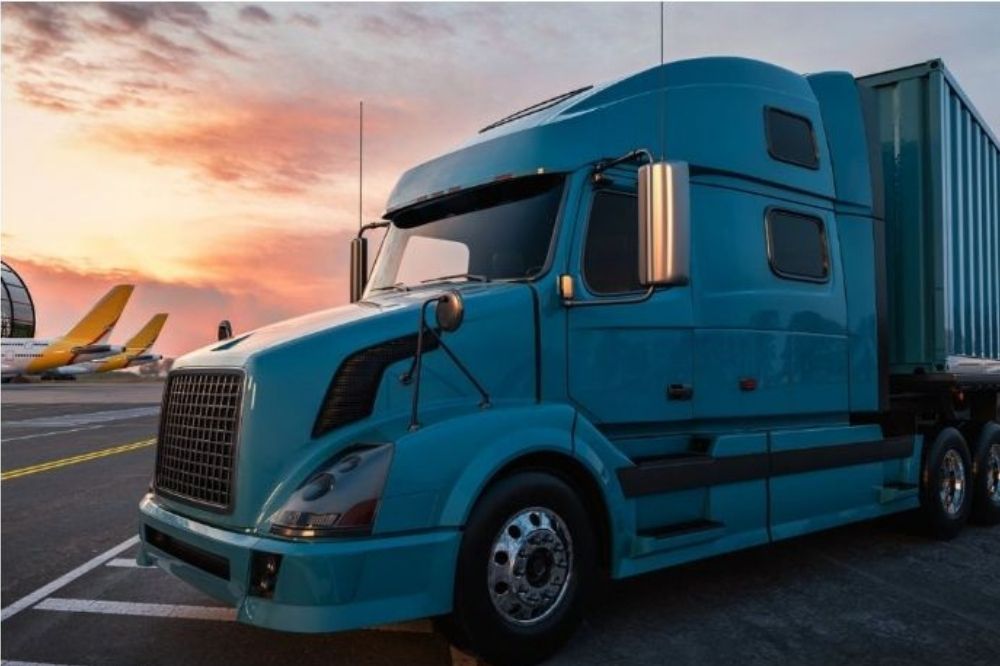
As a trucker, going green should be a top priority. Eco-friendly trucking is essential these days, as greenhouse gases are one of the main causes of global warming. If you’re always on the road as a truck driver, all it takes is a few extra precautions to save energy and avoid waste, and you can make a big impact.
Over the last three decades, new truck emissions have been reduced by more than 98%. This massive difference shows just how seriously truckers should take sustainability.
With that in mind, let’s explore everything you can do as a truck driver or fleet manager to implement more eco-friendly trucking practices.
Trends Driving Sustainable Trucking
Taking eco-friendly truck driving seriously is something that any truck driver or operator should do. Here are some key trends driving this shift towards greater sustainability in the trucking industry.
Government Regulations
Government regulations play a crucial role in promoting sustainable trucking.
Laws like the Clean Air Act require trucks to reduce their emissions. Regulations like this push companies to invest in cleaner technologies and focus on more sustainable driving practices.
As an owner-operator, compliance with these regulations is necessary to avoid penalties and to operate legally. This helps protect the environment and public health while ensuring trucking companies operate at a sustainable standard.
State-Specific Regulations
Different states have their regulations for trucking. For example, California has strict emissions standards that go beyond the federal requirements.
It’s important that trucking companies stay updated on these rules to avoid fines when involved in cross-state travel.
State-specific regulations can influence how fleets are managed and what technology trucking companies adopt to drive more sustainably.

Pressure to Take Action
There’s strong growing pressure on trucking companies to be more sustainable.
Customers and investors are placing increasing value on environmental responsibility. This pressure comes from consumers demanding greener practices and stakeholders wanting to make more ethical investments. Companies are responding by adopting eco-friendly measures and technologies.
This pressure is clearly working, as truck-related NOₓ and PM-10 emissions are projected to decline by 84.9 and 83.4 percent in 2024 when compared to 2000 levels. The trucking industry certainly isn’t shrinking, but a greater focus on sustainable practices is changing the way trucking companies operate.
Rising Diesel Costs
Another big factor in truck drivers wanting to reduce carbon emissions is the ever-increasing cost of diesel.
Diesel fuel prices are rising, which has an enormous impact on the trucking industry. Higher fuel costs eat into profits, making it essential to find cost-effective alternatives and apply fuel efficient driving strategies.
Many companies are turning to more fuel-efficient trucks or exploring electric and hybrid options. This shift helps reduce dependence on diesel and lowers overall operating costs. Of course, it’s also a great way to reduce greenhouse gas emissions at the same time.
Environmental Impact
The trucking industry has a significant environmental impact, mainly through greenhouse gas emissions. In fact, America’s trucks produce almost 6 million tons of carbon dioxide per year.
Reducing this impact is a major goal for sustainability. Sustainable trucking practices, like using alternative fuels and improving fuel efficiency, help lower emissions. This leads to cleaner air and a healthier planet.
Sustainability Measures
To promote eco-friendly trucking, operators of all sizes must look for ways to reduce emissions and introduce more sustainable practices.
Here are some of the best strategies to achieve more eco-friendly trucking.

Alternative and Renewable Fuels
Moving away from traditional fossil fuels and using alternative and renewable fuels is a great sustainability measure. This is becoming more readily available to truck drivers as technology advances.
Fuels like biodiesel, natural gas, and ethanol produce fewer emissions than traditional diesel. Renewable diesel and hydrogen are also gaining popularity.
These fuels help reduce the carbon footprint of trucks and are often more sustainable. Not only do alternative vehicle fuels help achieve a more sustainable future, but they can also reduce vehicle operating costs.
Idling Reduction
Reducing idling time is a simple but effective way to promote sustainability and improve fuel efficiency.
Trucks burn a lot of fuel while idling, which results in unnecessary emissions. Technologies like automatic engine shut-off and auxiliary power units can help. Otherwise, wimpy cutting the engine when the truck’s not moving can make a difference.
Smart Routing and Telematics
Using smart routing and telematics can be a great way to improve energy efficiency in the trucking industry while reducing your carbon footprint. This technology helps trucking operators improve efficiency in route planning, which helps reduce fuel consumption.
GPS systems and telematics track and optimize routes, helping you avoid traffic and reduce travel times. This not only saves fuel but also improves delivery times for trucking operators.
Efficient routing is a simple yet powerful way to enhance sustainability and improve the way your trucking business runs.

Aerodynamic Improvements
Aerodynamic improvements help trucks move more efficiently.
Adding things like trailer skirts and roof fairings reduces wind resistance. This makes trucks more fuel-efficient, leading to lower emissions. Even small aerodynamic adjustments can result in significant fuel savings.
Beyond the fact that this makes for more eco-friendly trucking, an aerodynamic vehicle is also more enjoyable to drive – especially on long-haul journeys.
Adjustments to Load
Proper load management is another simple, yet crucial, factor of sustainability in trucking.
Overloading trucks means you burn more fuel and face more wear and tear on the vehicle.
By balancing and reducing the load weight, you improve fuel efficiency. This practice helps in cutting down emissions and prolonging the life of your truck. It can also make deliveries a lot more efficient and easy to manage.
Hybrid and Electric Trucks
Hybrid and electric trucks are becoming increasingly popular. They use far less fuel (if they use fuel at all), producing fewer emissions than traditional diesel trucks.
Electric trucks are especially beneficial for short-distance deliveries, as electric trucks are still not quite ready for long-haul routes. However, electric trucking is certainly growing, with the electric truck market expected to grow at 54.3% between 2024 – 2030.
Investing in these technologies is a major step towards greener trucking.
Driver Training
Driver training is another big factor in sustainable trucking.
Educating drivers on fuel-efficient driving techniques can make a big difference in how eco-friendly they drive. Practices like smooth acceleration, maintaining steady speeds, and proper braking reduce fuel consumption while improving overall fleet efficiency at the same time.
Be an Eco-friendly Truck Driver
Ready to apply eco-friendly trucking practices? As a driver, here are some of the best things you can do to reduce carbon emissions.
Alternative and Renewable Fuels
Using alternative and renewable fuels is a great way to be an eco-friendly truck driver.
Choose fuels like biodiesel or natural gas if you can. These options produce fewer emissions than traditional diesel, reducing your carbon footprint and protecting the environment.
Maintain Your Truck
Regular maintenance is essential for eco-friendly driving.
Keep your truck in good condition to ensure it runs efficiently. Regularly check tire pressure, change oil, and replace air filters. A well-maintained truck uses less fuel and emits fewer pollutants.
Plan Your Routes
Properly planning your routes can save time and fuel.
Use GPS and route planning tools to find the most efficient paths. Avoid traffic and road closures whenever possible. This helps you drive fewer miles and reduces fuel consumption.
Drive Smarter
Smart driving techniques make a big difference.
Accelerate smoothly, maintain steady speeds, and avoid sudden braking. Use cruise control when possible.
These practices are simple, but they can make a big difference in saving fuel and reducing wear on your truck.
Go Paperless
Going paperless is another simple way to reduce waste as a truck driver. Use digital logs and receipts instead of paper – truck driving apps exist for this purpose.
Being conscious of your purchases at truck stops can also help you be more eco-friendly. For example, bring a reusable coffee mug on your trips if you drink coffee on the road. This is an easy way to cut down on paper and plastic consumption.
Recycle
Recycling is an easy and impactful eco-friendly habit. Recycle items like plastic bottles, cans, and paper. Many truck stops have recycling bins.
By recycling, you help reduce waste and conserve resources.
Final Thoughts
Reducing greenhouse gas emissions is a major topic, but it’s relatively simple when you focus on the right strategies. All it takes is a few small habits and changes to the way you drive and manage your vehicle, and it can make an enormous difference in how your trucking business can reduce greenhouse gas emissions.
Another key factor in how you reduce emissions is the type of truck you drive. If you’re interested in sustainability, then investing in a more eco-friendly vehicle can pay off big time over the long run. Get in touch with us at Mission Financial Services to start your journey in purchasing a sustainable truck that offers more for your business and the environment.


